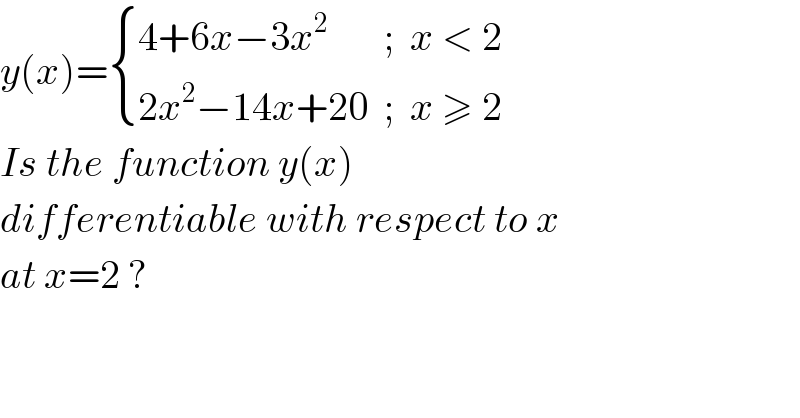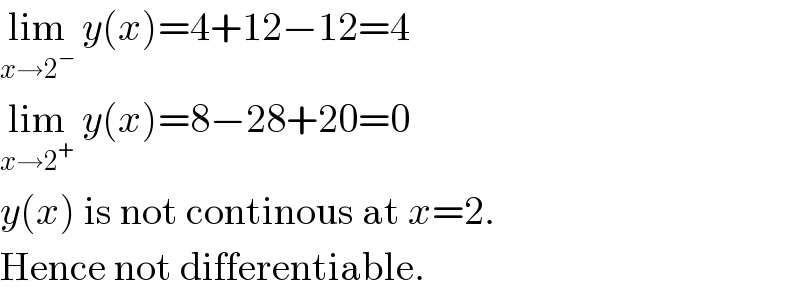
Question and Answers Forum
Question Number 13955 by ajfour last updated on 25/May/17

Commented byprakash jain last updated on 25/May/17

Commented byajfour last updated on 25/May/17

| ||
Question and Answers Forum | ||
Question Number 13955 by ajfour last updated on 25/May/17 | ||
 | ||
Commented byprakash jain last updated on 25/May/17 | ||
 | ||
Commented byajfour last updated on 25/May/17 | ||
 | ||